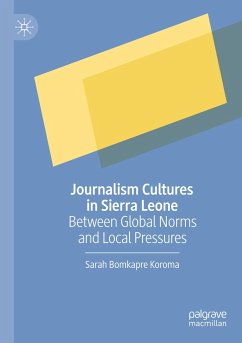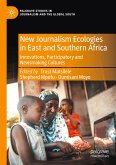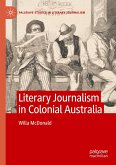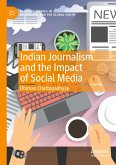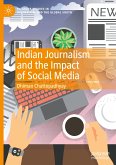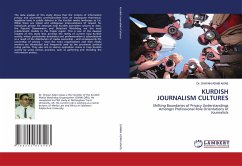This book provides novel insights into the perspectives of journalists in Sierra Leone and on their work by examining their perceived journalistic values and the influences that shape them. It treats journalism as an occupational identity and as a community that works on the foundation of the sub-Saharan African philosophies that exalts communal values in every sphere of life.
When journalists speak about their social function in society and values, they are sharing both their individual knowledge and experiences on their work. Therefore, journalistic values are never isolated ideologies, but exist within the contexts in which they practice. In this book, Sarah Bomkapre Koroma examines the perceptions of journalists on the societal influences that impact their work, ranging from individual, procedural, organizational, political, economic, and many more. Questions explored include:
What journalism cultures exist in Sierra Leone?What effects do societal factors have on these journalistic cultures?How do journalists in Sierra Leone describe their roles?What epistemological underpinnings do they consider during practice?
What ethical considerations do the journalists share?
When journalists speak about their social function in society and values, they are sharing both their individual knowledge and experiences on their work. Therefore, journalistic values are never isolated ideologies, but exist within the contexts in which they practice. In this book, Sarah Bomkapre Koroma examines the perceptions of journalists on the societal influences that impact their work, ranging from individual, procedural, organizational, political, economic, and many more. Questions explored include:
What journalism cultures exist in Sierra Leone?What effects do societal factors have on these journalistic cultures?How do journalists in Sierra Leone describe their roles?What epistemological underpinnings do they consider during practice?
What ethical considerations do the journalists share?

